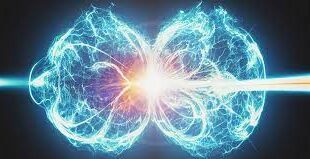In the wake of the tsunami that destroyed the Fukushima nuclear plant and shut down the rest of Japan’s nuclear industry. the country. which has few natural resources of its own. became the world’s largest importer of natural gas imports. accounting for about a third of global demand…
While the impact of these imports has eased as more gas supplies have come on to the world market and prices have fallen. they are an uncomfortable reminder of Japan’s energy dependence. But a solution may be at hand. in the form of methane hydrates. Methane hydrate occurs in all of the oceans as well as on land. in Arctic permafrost regions. It is believed that deposits of methane hydrate. which are very energy-dense. are larger than all of the world’s other oil. gas and coal deposits combined and so they have aroused the interest of several countries that lack access to other hydrocarbon resources. Japan has an estimated 40 trillion cubic feet of methane hydrate reserves. or at least a decade’s worth of gas. However. they are not easy to get at—they are molecules of methane trapped in ice crystals and are found at the bottom of the world’s oceans. To release the gas. the hydrates have to be either warmed or depressurized. Unsurprisingly. they are difficult and expensive to extract and capture.
However. there are doubts as to whether this is possible—not just because of the technical challenges but also because there is a global glut of gas coming onto the market from Australia. the US. Africa and elsewhere—that is keeping prices low and making it harder for the nascent technology to compete. There is a lot of gas available from other sources. both conventional and alternative resources such shale gas. that is much easier and cheaper to exploit. and this is being facilitated by the deepening of global gas markets. BP predicts that the LNG market will grow seven times faster than gas delivered by pipeline to account for almost half of all gas delivered. up from around a third now. “The significance of the growing importance of LNG-based trade is that. unlike pipeline gas. LNG cargoes can be redirected to different parts of the world in response to regional fluctuations in demand and supply.“ the company says. “As a result. gas markets are likely to become increasingly integrated across the world.“
However. a number of countries without other gas resources are hoping that today’s baby steps will be the start of a process that allows methane hydrates to follow the same path as fracking and to become a cost-competitive source of fuel. Many of them are heavy coal users. so this need not be an environmental catastrophe if the gas replaces coal. On the other hand. there is a reason methane hydrates have remained unexploited for so long—it is not an easy task.

 Iran Energy News Oil, Gas, Petrochemical and Energy Field Specialized Channel
Iran Energy News Oil, Gas, Petrochemical and Energy Field Specialized Channel



